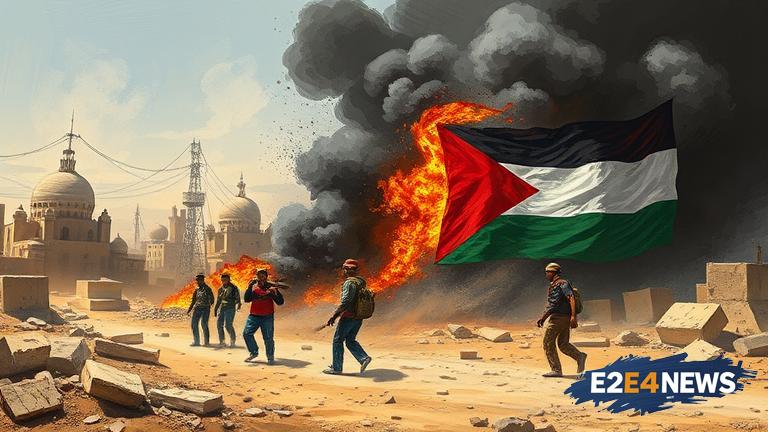The conflict between Gaza and Israel has been ongoing for several years, with periods of relative calm punctuated by outbreaks of violence. In recent days, the situation has escalated, with both sides exchanging fire and resulting in significant loss of life. The Gaza Strip, a coastal region bordering Egypt and Israel, has been under a blockade since 2007, which has severely impacted the local economy and living conditions. The blockade, imposed by Israel and Egypt, has limited the flow of goods and people into and out of the territory, leading to widespread poverty and unemployment. The humanitarian situation in Gaza is dire, with many residents lacking access to basic necessities such as food, water, and healthcare. The conflict has also had a significant impact on the environment, with damage to infrastructure and natural resources. The international community has called for a ceasefire and an end to the violence, but so far, a lasting resolution has not been reached. The United States, European Union, and other countries have urged both sides to return to the negotiating table and work towards a peaceful resolution. The conflict has also had a significant impact on the regional stability, with neighboring countries such as Egypt and Jordan expressing concern about the situation. The Gaza-Israel conflict is a complex issue, with deep-rooted historical, cultural, and political factors contributing to the ongoing violence. The conflict has resulted in the displacement of thousands of people, with many forced to flee their homes and seek shelter in other parts of the territory. The psychological impact of the conflict on civilians, particularly children, has been significant, with many experiencing trauma and anxiety. The economic impact of the conflict has also been severe, with the blockade limiting the ability of businesses to operate and resulting in widespread poverty. The international community has provided significant humanitarian aid to Gaza, but more needs to be done to address the root causes of the conflict. A lasting resolution to the conflict will require a comprehensive approach that addresses the political, economic, and social factors contributing to the violence. The role of the international community will be crucial in facilitating a peaceful resolution, with countries such as the United States and European Union playing a key role in promoting dialogue and negotiations. The conflict has also highlighted the need for a two-state solution, with Israel and Palestine living side by side in peace and security. However, achieving this goal will require significant concessions from both sides, as well as a commitment to non-violence and cooperation. The Gaza-Israel conflict is a reminder of the ongoing challenges facing the Middle East, with the region experiencing significant instability and conflict in recent years. The conflict has also had a significant impact on the global community, with many countries expressing concern about the situation and calling for a peaceful resolution. In conclusion, the Gaza-Israel conflict is a complex and deeply ingrained issue, requiring a comprehensive and sustained approach to resolve. The international community must continue to play a key role in promoting dialogue and negotiations, while also addressing the humanitarian needs of those affected by the conflict.





